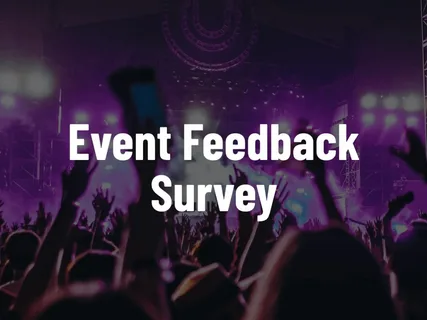Introduction
Whether it’s a corporate seminar, music concert, or virtual summit, events are only as good as the experiences of their participants. That’s why event feedback surveys are vital. They help organizers understand what worked, what didn’t, and how future events can be improved.
Why Event Feedback Surveys Matter
Events often require significant investments of time, money, and resources. Without feedback, organizers risk repeating mistakes or overlooking opportunities for improvement. Post-event surveys can reveal:
- How engaging the sessions were
- Whether the venue was suitable
- If attendees found the content valuable
Asking well-crafted event feedback survey questions ensures organizers gather meaningful responses rather than vague impressions.
Pre- and Post-Event Surveys
Effective feedback collection often starts before the event. Pre-event survey questions help organizers gauge expectations, preferred formats, or topics. For example, before a training workshop, participants may be asked what skills they most want to develop.
Meanwhile, post-event survey questions evaluate how well the event met expectations. When analyzed together, these surveys give a complete picture of event effectiveness.
For advanced users, My Survey Help provides guidance on how to analyze pre and post event survey data. Organizations can even learn how to run a paired t test in SPSS for pre and post event survey to measure statistical significance.
Virtual Event Feedback
In today’s digital age, virtual event feedback surveys are just as important as in-person ones. They focus on evaluating technology, ease of participation, and online engagement. By leveraging insights from survey data analysis, virtual event hosts can optimize everything from platform choice to session structure.
Conclusion
Event feedback surveys are more than just a checklist — they are continuous improvement tools. With professional help, organizers can ensure that each event surpasses the last in delivering value and engagement.


